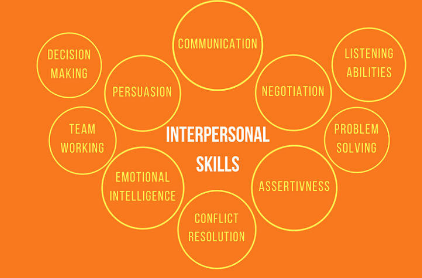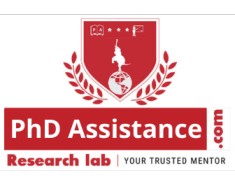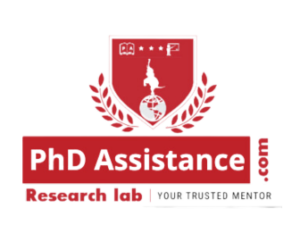Dissertation Literature Review On Applying Interpersonal And Communication Skills To Successfully Lead Manage And/Or Participate In A Team
In Brief:
- You will find the best dissertation research areas / topics for future researchers enrolled in Business & Management coursework or pursuing management dissertation UK.
- In order to identify the future research topics, we have reviewed the Business & Management (recent peer-reviewed studies) on Management dissertation.
- Communication and interpersonal skills are interrelated as the latter help an individual to handle the flow of communication with their peers or professional executives.
- If there is a lack of communication, misunderstandings and inappropriate dissemination of information would impose a significant impact on the performance and productivity.
- It is necessary to ensure that the employees are communicated with proper goals and objectives so that they are able to work in a proper direction and avoid mistakes.
- The interpersonal skills are also required so that the employees are able to align what has been communicated to them with what they are required to execute.

Introduction
Communication, honesty, integrity, innovation and relationship building are effective skills which must be possessed by leaders while handling a team. Moreover, interpersonal skills are effective for communicating and building relationships with others which are often called personal skills or personality traits which can be used for handling a team under a certain social situation (Hurtado-Martn & Khalili, n.d.). Communication and interpersonal skills are interrelated as the latter help an individual to handle the flow of communication with their peers or professional executives. Get literature review writing help to highlight research gaps and to identify the research problem.
PhD Assistance works on interpersonal and communication skill. Hiring our experts, you are assured with quality and on-time delivery.
Contribution of communication skills for leading, managing and participating in a team
Proper communication with the employees can be stated as an effective keystone for managing, leading or participating in a team. Effective communication also enables the employees to share their feelings and express their thoughts regarding any corporate matter. It is necessary to ensure that the employees are clear with priorities, long term goals, strategy and executional information, gratitude and similar other aspects. Time management, knowing the team members, leading by examples, rewarding good deeds of the employees, delegating workload and being decisive are certain core factors that are required to be considered while a leader is leading or managing a team (Vijayalakshmi, 2016). Moreover, conducting meeting or discussion sessions would also help the employees to open up with their problems and also contribute their viewpoints to a particular situation.
Leadership style like democratic leadership style as per the name suggests, herein this type of style, the leaders take input from each of the team members before making a decision. This process helps leaders to make effective decisions and this type of leadership is among the best leadership styles as the executives or employees of lower level are also able to gain authority to express their views and contribute towards the decision making process of their organisation (Schulze & Krumm, 2017). Moreover, if there is a lack of communication, there would take place misunderstandings and inappropriate dissemination of information would also impose a significant impact on the organisation performance and productivity. Along with this, the employees might also not feel the sense of job satisfaction and this in turn would give rise to higher employee turnover rate. Students can avail dissertation assistance on management from any topic.
Hire PhD Assistance experts to develop your interpersonal and communication skill for your Business & Management.
Considering a leader who is associated with handing and taking participation in a team, it is necessary for them to be a good listener, complementing, delegate tasks with clarity, managing meetings and ensure positive verbal and non-verbal communication, with this, they would be able to engage themselves with the employees that would result in active participation of the employees into different activities (Miller, 2019). Employee engagement and employee motivation is along with necessary to be maintained by the leaders and the top level management of the organisation. There are instances where leaders are autocratic in their approach where they do not understand the necessity of seeking assistance or making the employees take part in the decision making process.
This might affect their performance and might also affect their personality traits. For instance, considering the change of working hours or delegating someone else’s work to the other one might be hegemonic for them and this might compel them to take a drastic step regarding their job and this might cause an issue for the higher level of management (Jena & Satpathy, 2017).
PhD Assistance experts has experience in handling dissertation and assignment in any industry with assured 2:1 distinction. Talk to Experts Now
Advantages of interpersonal skills for handling, leading and participating in a team
Interpersonal skills are effective for letting an individual to communicate with others and apart from communication; the set of interpersonal skills also includes active listening, teamwork, responsibility, dependability, flexibility, empathy and patience (Srivastava & Yadav, 2017). It is necessary for leaders or managers who are working in a corporate environment to ensure that they possess the mentioned set of interpersonal skills so as to avoid corporate pressure. It would act as an asset to handle and navigate day to day activities and tasks.
Strong interpersonal skills like empathy, understanding and evaluating, presenting, written communication, diplomacy, persuasion and negotiation are certain another set of skills that are possessed by the leaders while they are handling a team. In order to handle a team effectively, it is necessary for leaders to have emotional intelligence, conflict resolving skills, empathy and building consensus and appropriate communication (Krumm et al., 2016). For instance, there might be a clash of viewpoints of a senior employee and a junior employee, henceforth, it is necessary for the leaders in such cases to solve the conflicts and settle the matter on a mutual basis (Ferrar et al., 2018). Fostering interpersonal relationships with the employees at times might also be used to motivate the employees.
Moreover, the leaders are required to handle the team members with strong self-confidence, maintaining the work ethics, relationship management and sheer collaboration the leaders and managers would be able to acquire knowledge regarding the thinking of the employees and accordingly solve their issues through discussion sessions or meetings (Hansen, 2016). Along with this, being determinant and persistent would also help the leaders to honestly handle the social situations and adopt appropriate strategies like key performance indicators, performance appraisals, reward systems, 360 degree feedback, management by objectives (MBO), personal development plans (PDPs) and similar others for analysing the performance of the employees so as to avoid mistakes or misinterpretation of information to eliminate any negative impact on the organisational performance and productivity or handle the employee retention rate (Skinner et al., 2016).

Figure.1: Interpersonal skills required to be possessed by Leaders while managing a team
(Source: Skinner et al., 2016)
PhD Assistance has vast experience in handling interpersonal and communication skill for students pursuing the UK dissertation in Business & Management. Order Now
Conclusion
Taking into consideration the above, it can be analysed that possessing communication and interpersonal skills are of sheer significance for leaders who are into handling or managing a team. Appropriate communication would be effective to maintain the decorum of the organisation where the employees are working. In order to gain appropriate work results, it is necessary for the leaders to ensure that the employees are communicated with proper goals and objectives so that they are able to work in a proper direction and avoid mistakes.
Whereas, the interpersonal skills are also required to be shaped so that the employees are able to align what has been communicated to them with what they are required to execute. Although studies have focused on leadership, the attention now shifted towards dynamic and technology oriented artificial intelligence leadership style which is different from the traditional ones. Using AI based techniques will help the managers to utilize the leadership skills effectively and avoid any further mistakes. The interpersonal skills will help in effective communication between the employees and the managers. Implementing AI based context for linking interpersonal skills can be considered as a future scope.
Referred Blog
References:
- Ferrar, P., Hosea, L., Henson, M., Dubina, N., Krueger, G., Staff, J. & Gilbert, W. (2018). Building high performing coach-athlete relationships: the usocs national team coach leadership education program (NTCLEP). International Sport Coaching Journal. [Online]. 5 (1). pp. 60–70. Available from: https://journals.humankinetics.com/view/journals/iscj/5/1/article-p60.xml.
- Hansen, D.E. (2016). Cohesion in online student teams versus traditional teams. Journal of Marketing Education. [Online]. 38 (1). pp. 37–46. Available from: https://journals.sagepub.com/doi/abs/10.1177/0273475315594463.
- Hurtado-Martn, M. & Khalili, N. (n.d.). Pathways to Cleaner Production in the Americas II: Application of a Competency Model to Experiential Learning for Sustainability Education. [Online]. Available from: https://www.researchgate.net/profile/Marta_Panero/publication/301311990_Pathways_to_Cleaner_Production_in_the_Americas_Bridging_Industry-Academia_Gaps_in_the_Transition_to_Sustainability/links/5ad1211baca272fdaf7792ea/Pathways-to-Cleaner-Production-in-the-Americas-Bridging-Industry-Academia-Gaps-in-the-Transition-to-Sustainability.pdf.
- Jena, A. & Satpathy, S.S. (2017). Importance of Soft Skills in Project Management. International Journal of Scientific Research and Management (IJSRM). [Online]. 5 (07). pp. 6173–6180. Available from: https://www.academia.edu/download/58756515/850-Article_Text-1444-1-10-20171225_2.pdf.
- Krumm, S., Kanthak, J., Hartmann, K. & Hertel, G. (2016). What does it take to be a virtual team player? The knowledge, skills, abilities, and other characteristics required in virtual teams. Human Performance. [Online]. 29 (2). pp. 123–142. Available from: https://www.tandfonline.com/doi/abs/10.1080/08959285.2016.1154061.
- Miller, P. (2019). Leadership communication: the three levels. [Online]. Available from: https://works.bepress.com/peter_miller/145/download/.
- Schulze, J. & Krumm, S. (2017). The virtual team player A review and initial model of knowledge, skills, abilities, and other characteristics for virtual collaboration. Organizational Psychology Review. [Online]. 7 (1). pp. 66–95. Available from: https://journals.sagepub.com/doi/abs/10.1177/2041386616675522.
- Skinner, K.L., Hyde, S.J. & McPherson, K. (2016). Improving Students’ Interpersonal Skills through Experiential Small Group Learning. Journal of Learning Design. [Online]. 9 (1). pp. 21–36. Available from: https://eric.ed.gov/?id=EJ1096720.
- Srivastava, R. & Yadav, S. (2017). A Research Study on the affect of Emotional Intelligence on the Ability to Handle the Conflict and Team Building. Splint International Journal of Professionals. [Online]. 4 (5). pp. 86–93. Available from: http://search.proquest.com/openview/aad87d247d04f2fdc3fb24c73cc9db11/1?pq-origsite=gscholar&cbl=2044944.
- Vijayalakshmi, V. (2016). Soft Skills-The Need of the Hour for Professional Competence: A Review on Interpersonal Skills and Intrapersonal Skills Theories. International Journal of Applied Engineering Research. [Online]. 11 (4). pp. 2859–2864. Available from: https://pdfs.semanticscholar.org/2ff5/baed1a51942d446110017d9445d538922e24.pdf.



